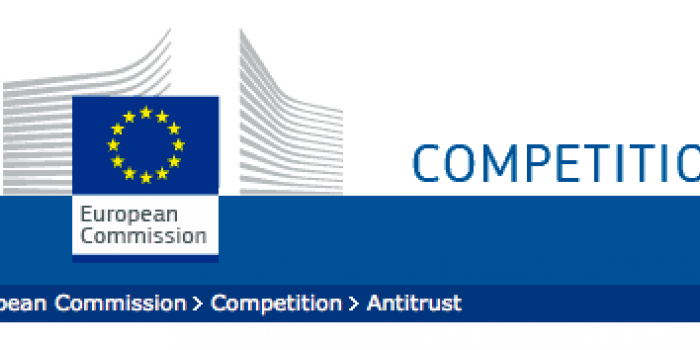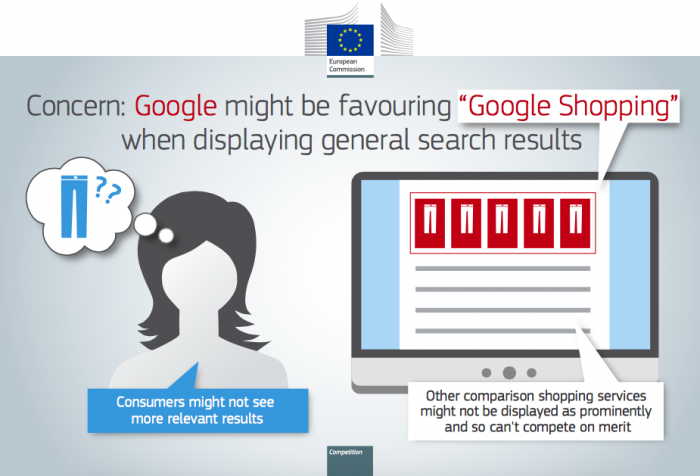PRIVACY - Google inquiries: is it an abuse of dominant position? Eu Commission suspects violations of EU antitrust rules.

La Commissione europea ha avviato un'indagine a carico di Google - che, nello spazio europeo, gestisce il 90% delle informazioni ricercate nel web dai consumatori - poiché il gigante di Mountain View tratterebbe dal 2008 le informazioni in modo censurabile nelle proprie pagine che mostrano i risultati delle ricerche. Questo andrebbe a vantaggio dei suoi servizi e a danno della concorrenza, causando una deviazione artificiosa del traffico sulla rete, ostacolando l'altrui competitività a danno dei consumatori e altresì soffocando l'innovazione tecnologica.
Secondo la Commissione europea infatti si verificherebbe una sistematica alterazione dei parametri di ricerca, talché gli internauti - a seguito degli algoritmi adoperati da Google - vedrebbero frustrate le loro aspettative di vedere, come risultato delle loro ricerche, i risultati effettivamente più rilevanti. L'indagine nei confronti di Google è stata avviata anche per altre tre ulteriori verifiche: sullo scraping, sulla esclusività della pubblicità e sulle relative indebite restrizioni, trattandosi di altri fenomeni che provocano una distorsione della concorrenza. La Commissione europea è lapidaria e non usa mezzi termini: "Google Inc. has abused a dominant position in online search, in violation of European Union rules (Article 102 TFEU)". Il motore di ricerca interno di Google infatti restituisce, all'utente che lo interroghi siccome alla ricerca di un certo risultato, due tipi diversi di esito, quello concernente inserzioni a pagamento e quello libero. L'indagine della Commissione è testa a verificare se c'è realmente stato un abuso di posizione dominante nell'offrire i risultati delle ricerche online ("[...] The Commission will investigate whether Google has abused a dominant market position in online search by allegedly lowering the ranking of unpaid search results of competing services [...]").
Del resto se il motore di ricerca de quo visualizza ciò che è utile che la gente veda, piuttosto che ciò che le persone stanno cercando, l'oggettività dei parametri, del ranking e delle stesse ricerche risultano falsati a monte, ancorché gli utenti non se ne accorgano. Il fenomeno è preoccupante, anzi inquietante. Poiché i risultati pilotati nel web sono inaccettabili. Della "volta generale" teorizzata dal filosofo francese Jean- Jacques Rousseau non sentivamo alcun bisogno ("Occorre quindi, per avere l'espressione vera della volontà generale, che non vi sia nello Stato alcuna società parziale e che ogni cittadino (non) pensi con la propria testa.", J.-J. Rousseau, Il contratto sociale, II, 1; II, 2; II, 3).
Qui di seguito la notizia ufficialmente offerta dalla Commissione europea.
* * *
Antitrust: Commission sends Statement of Objections to Google on comparison shopping service
Brussels, 15 April 2015
(also see: http://ec.europa.eu)
The European Commission has sent a Statement of Objections to Google outlining the Commission's preliminary view that the company is abusing a dominant position, in breach of EU antitrust rules, by systematically favouring its own comparison shopping product in its general search results pages in the European Economic Area (EEA). The Commission is concerned that users do not necessarily see the most relevant results in response to queries – to the detriment of consumers and rival comparison shopping services, as well as stifling innovation.
Google has a dominant position in providing general online search services throughout the EEA, with market shares above 90% in most EEA countries.
Since 2002, Google has also been active in providing comparison shopping services, which allow consumers to search for products on online shopping websites and compare prices between different vendors. The first product it offered, "Froogle", was replaced by "Google Product Search", which in turn was replaced by its current product "Google Shopping".
The Statement of Objections outlines that the markets for general search and comparison shopping are two separate markets. In the latter market, Google faces competition from a number of alternative providers.
The Commission's preliminary conclusions in the Statement of Objections
The Statement of Objections alleges that Google treats and has treated more favourably, in its general search results pages, Google's own comparison shopping service "Google Shopping" and its predecessor service "Google Product Search" compared to rival comparison shopping services.
Google's conduct may therefore artificially divert traffic from rival comparison shopping services and hinder their ability to compete, to the detriment of consumers, as well as stifling innovation.
More specifically, the preliminary conclusions are:
- Google systematically positions and prominently displays its comparison shopping service in its general search results pages, irrespective of its merits. This conduct started in 2008.
- Google does not apply to its own comparison shopping service the system of penalties, which it applies to other comparison shopping services on the basis of defined parameters, and which can lead to the lowering of the rank in which they appear in Google's general search results pages.
- Froogle, Google's first comparison shopping service, did not benefit from any favourable treatment, and performed poorly.
- As a result of Google's systematic favouring of its subsequent comparison shopping services"Google Product Search" and "Google Shopping", both experienced higher rates of growth, to the detriment of rival comparison shopping services.
- Google's conduct has a negative impact on consumers and innovation. It means that users do not necessarily see the most relevant comparison shopping results in response to their queries, and that incentives to innovate from rivals are lowered as they know that however good their product, they will not benefit from the same prominence as Google's product.
The Statement of Objections takes the preliminary view that in order to remedy the conduct, Google should treat its own comparison shopping service and those of rivals in the same way. This would not interfere with either the algorithms Google applies or how it designs its search results pages. It would, however, mean that when Google shows comparison shopping services in response to a user's query, the most relevant service or services would be selected to appear in Google's search results pages.
Sending a Statement of Objections does not prejudge the outcome of the investigation. Google now has the opportunity to respond to the Commission's allegations outlined in the Statement of Objections within ten weeks. It can also seek an oral hearing to present comments. The Commission will fully respect Google's rights of defence and carefully consider its comments before taking a decision.
The Commission has previously outlined four concerns as regards Google's conduct. Today's Statement of Objections relates to the first of those concerns. In the context of that concern, the Commission continues to actively investigate Google's conduct as regards the alleged more favourable treatment of other specialised search services. The Commission also continues to actively investigate Google's conduct with regard to the other three concerns (copying of rivals’ web content (known as 'scraping'), advertising exclusivity and undue restrictions on advertisers). The sending of a Statement of Objections in relation to comparison shopping does not in any way prejudge the outcome of the Commission's investigation of the other three concerns.
Procedural background on antitrust investigations
Article 101 of the Treaty on the Functioning of the European Union (TFEU) prohibits anticompetitive agreements and decisions of associations of undertakings. Article 102 TFEU prohibits the abuse of a dominant position which may affect trade and prevent or restrict competition. The implementation of these provisions is defined in the Antitrust Regulation (Council Regulation No 1/2003), which can be applied by the Commission and by the national competition authorities of EU Member States.
A statement of objections is a formal step in Commission investigations into suspected violations of EU antitrust rules. The Commission informs the parties concerned in writing of the objections raised against them. The addressees can examine the documents in the Commission's investigation file, reply in writing and request an oral hearing to present their comments on the case before representatives of the Commission and national competition authorities. The Commission takes a final decision only after the parties have exercised their rights of defence.
There is no legal deadline for the Commission to complete antitrust inquiries into anticompetitive conduct. The duration of an antitrust investigation depends on a number of factors, including the complexity of the case, the extent to which the undertaking concerned cooperates with the Commission and the exercise of the rights of defence.
MEMO/15/4781

Tags: salvatore frattallone, Frattallone & Partners Law Firm, avvocato, causa , ricovero, consenso informato, cyberbullismo , Antonello Sini, lagunare, Segretario Generale, Elisabetta Righi Iwanejko, Segretario di Stato, Serenissima Repubblica di San Marino, Augusto Michelotti, Territorio Ambiente Turismo

